The death toll rose to 17 on Monday in the aftermath of Sunday’s explosion at a gas processing plant in Lagos, Nigeria. According to emergency services, the explosion caused a fire to break out in a suburb of Lagos, the commercial capital of Nigeria, resulting in further damage.
Over two hundred people are now displaced after the explosion and fire destroyed more than 50 buildings, including houses. Reports Monday indicated people are still buried under the rubble of collapsed buildings, including multi-story structures and schools, with locals urging first responders to continue their search and rescue efforts. According to local media, first responders continue to search for survivors of the accident; 25 people have been rescued from the area so far.
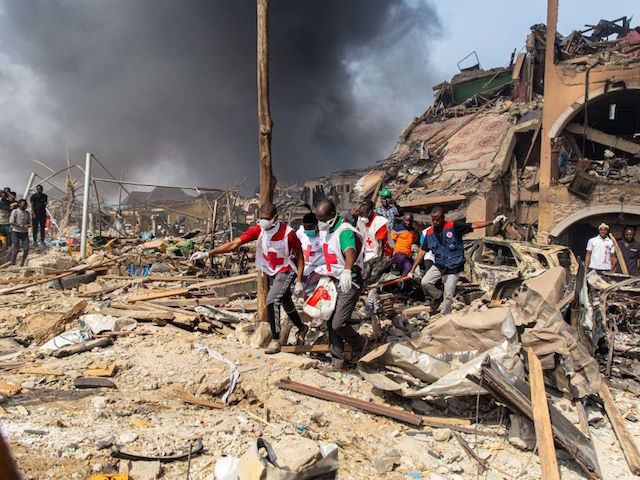
Members of the Red Cross carry a dead body after a gas explosion destroyed buildings and killed at least 15 people in Nigeria’s commercial capital Lagos on March 15, 2020. (BENSON IBEABUCHI/AFP via Getty Images)
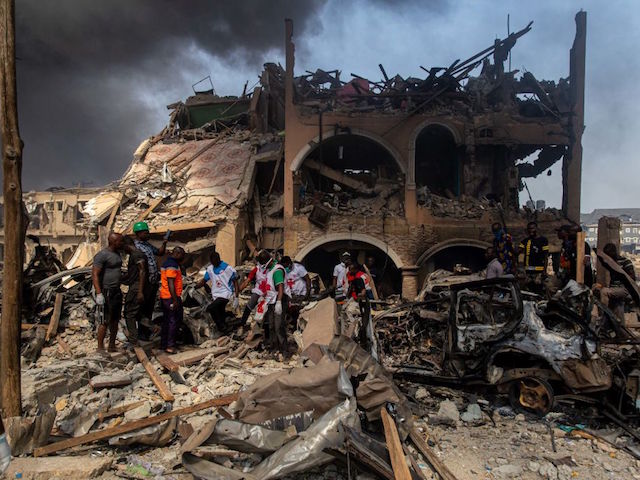
Members of the Red Cross carry a dead body after a gas explosion destroyed buildings and killed at least 15 people in Nigeria’s commercial capital Lagos on March 15, 2020. (BENSON IBEABUCHI/AFP via Getty Images)
Nigerian officials urged calm Monday amid an ongoing investigation into the origins of the blast by national organizations such as the National Emergency Management Agency (NEMA) and the Lagos State Emergency Management (LASEMA).
The explosion was triggered when a truck collided with some gas cylinders stored in a gas processing plant near a pipeline in the Abule Ado region of Lagos state. The Nigerian National Petroleum Corporation (NNPC), a state-owned oil company, operates this pipeline. The explosion’s impact damaged the pipeline and caused the collapse of nearby houses, destroying at least 50 buildings. It also forced the NNPC to halt pumping operations on the Atlas Cove-Mosimi pipeline, according to a statement released by the oil company.
On Sunday, Ibrahim Farinloye, the zonal coordinator for NEMA said several people were injured initially and received medical care at a hospital. The NNPC said that the temporary shutdown of the pipeline would not affect the normal supply of products to Lagos or the surrounding area.
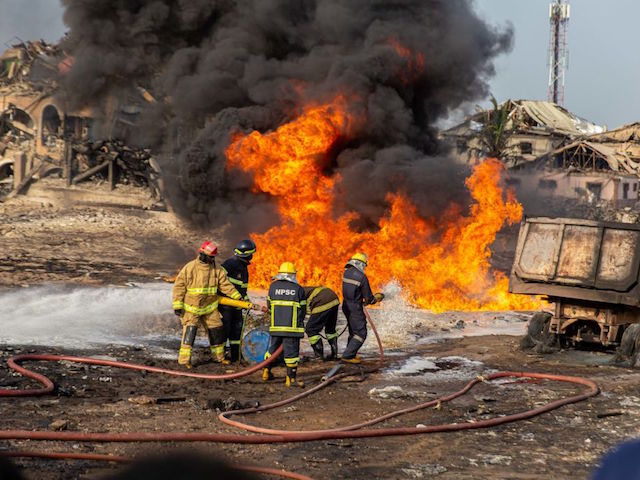
Firefighters try to extinguish a fire from the scene of a gas explosion near destroyed buildings in Lagos on March 15, 2020. (BENSON IBEABUCHI/AFP via Getty Images)
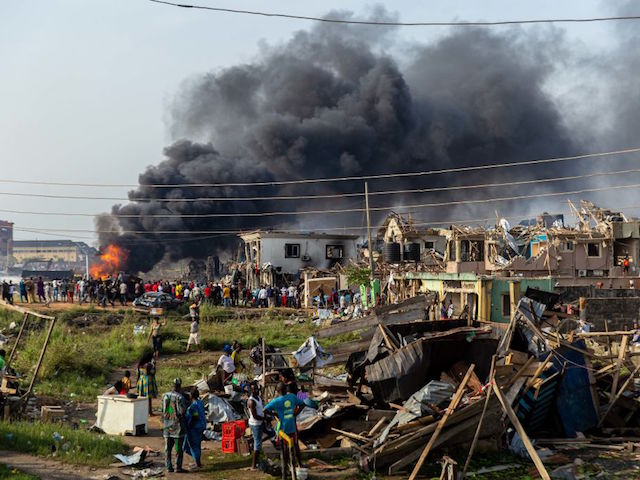
This picture taken on March 15, 2020, shows scattered debris while a fire is still burning at the scene of a gas explosion in Lagos. (BENSON IBEABUCHI/AFP via Getty Images)
The explosion was reportedly felt up to 15 km away, reverberating through and shaking the foundations of buildings across the state. A common occurrence in Nigeria, pipeline fires are usually caused by theft or sabotage; people often try to steal oil, causing damage to pipelines and resultant fires. Nigeria is Africa’s largest producer of crude oil.
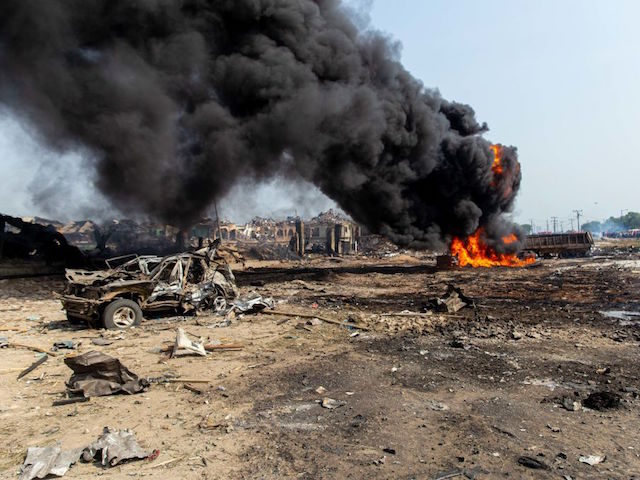
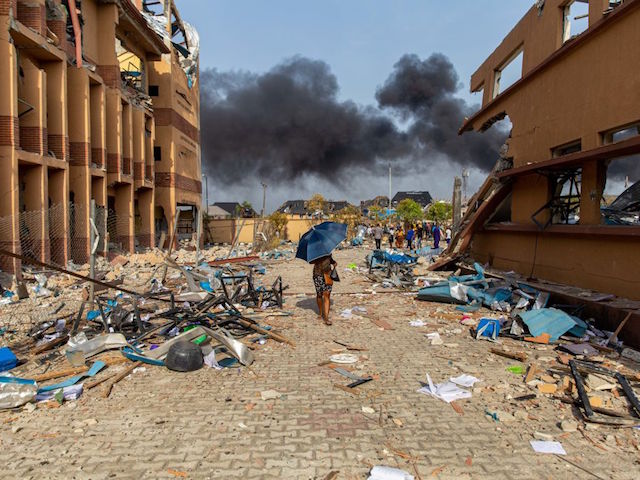
COMMENTS
Please let us know if you're having issues with commenting.